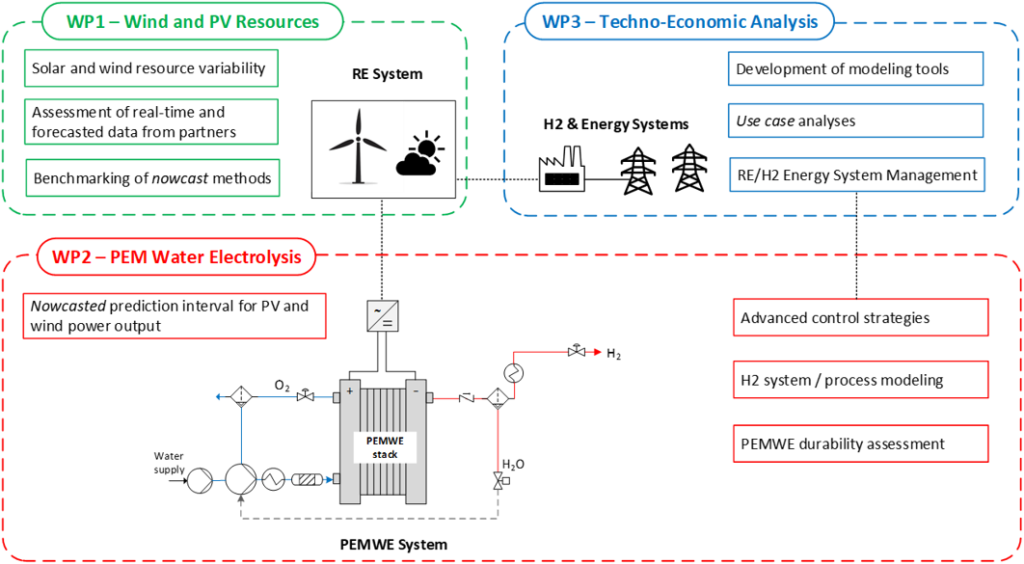REHSYS
In the REHSYS-project, the objective is to study and optimize the design and operation of industrial scale water electrolysis systems based on wind, photovoltaic solar (PV), and proton exchange membrane (PEM) technology, with the aim to support technology developments required to reach the cost target for renewable energy-based hydrogen.
The main objective of the REHSYS-project is to study and optimize the design and operation of industrial scale water electrolysis systems based on wind, photovoltaic solar (PV), and proton exchange membrane (PEM) technology, with the aim to support technology developments required to reach the cost target of 1-2 USD per kg of hydrogen for renewable energy (RE) based hydrogen (H2) production. To achieve this the project seeks to maximize the efficiency, lifespan, and economy of RE/H2 systems by exploring system designs and operational schemes for specific locations having different weather conditions, scales, grid constraints, and prospective hydrogen off-takers.
The three key research challenges and topics addressed in the project are as follows: (1) Forecasting of PV resources in real time, (2) Efficient design, and control of dynamically operated PEMWE systems, and (3) Optimization of RE/H2-systems for given locations. From this follows three work packages: (1) Assessment of the variability in PV resources at different locations and development of novel nowcasting methodology, (2) Experimental testing and modelling of a PEMWE system operated with solar PV power, and (3) Techno-economic optimization (sizing and control strategy) incorporating PV nowcasting for specific use cases. Locations with existing RE and/or H2 infrastructure will be carefully selected together with the Industry Partners to ensure access to data suitable for modelling and analysis.

Partners and external resources
The REHSYS-project is led by IFE, which will contribute with researchers from three different departments (Solar, Hydrogen, and Energy Systems Analysis). The University of Oslo will educate a PhD on PEM water electrolysis systems at the Department of Technology Systems (ITS), while the National Renewable Energy Laboratory (NREL) in the USA will serve as the main International Research Partner. Equinor, Statkraft, Nel Hydrogen and Hydro Havrand, four multi-national Norwegian Industry Partners with significant ambitions on the development of renewable energy and hydrogen systems, support and participate in the project.

